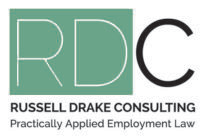As medical professionals, most General Practitioners will issue medical certificates to employees deeming them unfit for work, or of limited capacity. However, increasingly Employers are becoming frustrated with the ease of which many medical certificates are obtained, often becoming alarmed at the conclusions made.
So, what rights do you have to challenge a medical certificate?
Based on the Medical Council guidelines to GP’s in issuing medical certificates, a doctor must make a distinction between clinical diagnosis and patient reporting. For this reason, we will often see medical certificates that state the words “the patient advises that they have been unwell since ——- and it is my opinion that they will continue to be unwell until ——“. The issue for the doctor in providing such a certificate is that, without being able to obtain specific facts, they are largely in a position where they must accept that the words of the employee are factual.
Similarly, we are increasingly seeing medical certificates being presented that indicate that ‘the patient believes that they will continue to be unwell until ——‘. This implies that there is no clinical diagnosis but simply that the doctor is replying solely upon the employee’s view of how long they believe it will take them to recover.
The two most common scenarios raising concern amongst Employers is employees, who have been absent under questionable circumstances, who are now required to obtain a medical certificate at the employer’s expense for an absence of less than three days, and medical certificates being issued for ‘workplace stress’ when an employee is subject to disciplinary action or a restructure consultation process.
In the first of these instances the medical certificates are generally issued retrospectively – this being, the employee has now returned to work with no signs of ailment and therefore when they attend the doctor with respect to the previous day of absence, the doctor has no ability to determine whether a genuine sickness or injury existed. Despite this the doctor will issue the employee with a medical certificate confirming that the employee was unwell on the day in question.
In such cases, the Employer is entitled to seek confirmation from the doctor as to what clinical signs or evidence was relied upon in seeking to reach their conclusions.
In the second of these instances, workplace stress can be a very subjective matter with the employee often failing to advise the doctor of the actual situation being faced in the workplace. We have recently seen medical certificates being issued for employees facing a disciplinary process where the doctor has concluded that in my opinion the employee is suffering workplace stress and will continue to incur these symptoms for up to three months.
In such cases, it is well within the Employer’s right to question the doctor, specifically when it is related to an ACC claim, on what evidence has been provided from the workplace to support the claim of stress, and what understanding the doctor has of the workplace.
Still, we do need to be honest, many General Practitioners do not like being challenged to have to justify their position and for this reason any requests by the employer may be met with total silence. However, as an incorrectly issued medical certificate can result in a complaint to the Medical Council, some GP’s will respond by retracting the previously issued certificate on the basis that this cannot be substantiated.
An Employer, where an employee who has been subject to a ‘questionable absence’, even when this is supported by an equally questionable medical certificate, may have valid justification to implement formal disciplinary action. However, for this to avoid an unnecessary personal grievance claim, at minimum there would need to be evidence of the employer’s questioning of the validity of the certificate and of seeking further information.
If you are in receipt of a questionable medical certificate and are wondering what options you have in seeking to challenge this, please feel free to give us a call to discuss this situation and we would be more than happy to support you through the process.

